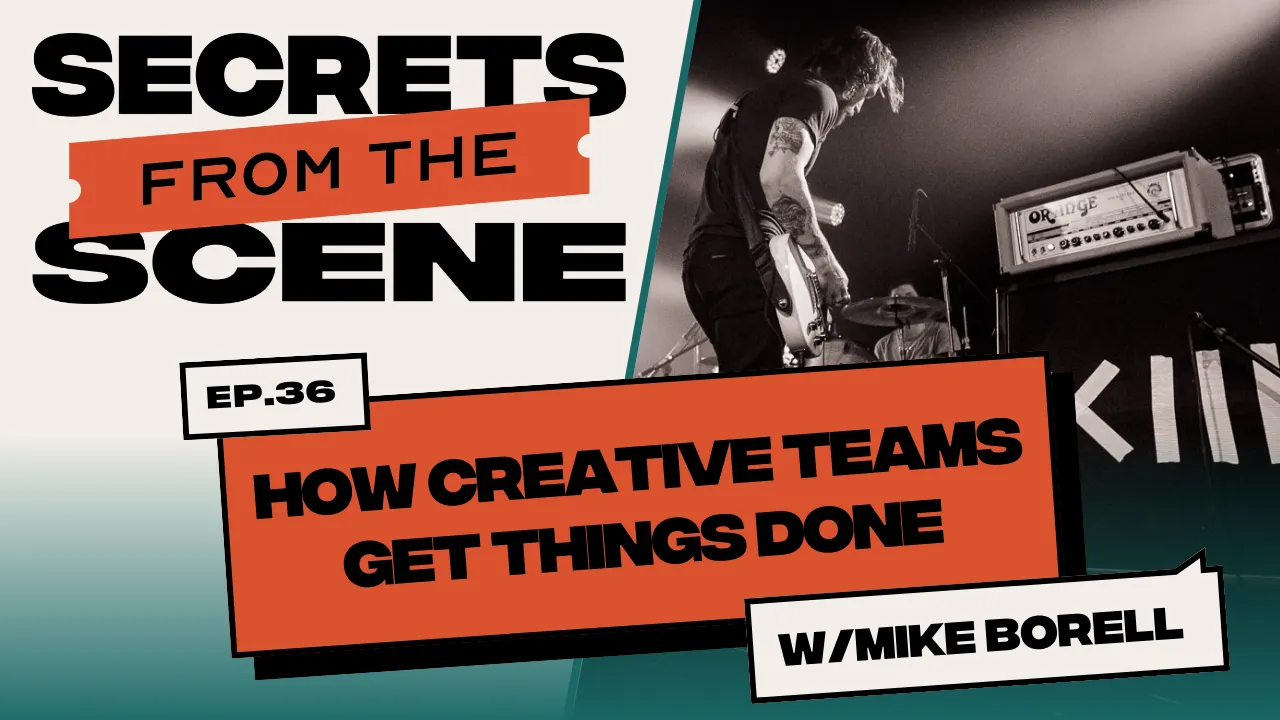Show Notes
Feeling like your creative goals are always bogged down by poor execution? Whether it's bad planning, lack of communication, or simply not following through, our ambitions often outweigh our accountability. Despite our good intentions, time keeps slipping by and nothing seems to get done. If this sounds like you, it's time to get organized and start working like a professional creative team.
In this episode of Secrets from the Scene, I'm excited to welcome Mike Borell, a local musician and experienced project manager. Mike's got some fantastic insights, drawing from both his corporate gig and his music projects, to share actionable strategies for building and managing effective creative teams.
Here's what we dive into:
- Team Roles: Discover the essential roles within creative teams and how they contribute to project success.
- Effective Collaboration: Learn strategies for solving creative differences that arise between bandmates while fostering a positive, productive culture for new ideas.
- Project Management: Gain insights into managing projects efficiently, from planning to execution.
- Personal Journey: Hear Mike's story of balancing a professional career with his musical ambitions and get tips on navigating both worlds successfully.
Can't wait for you to listen! Hit play now and start transforming your creative process!
watch now on YouTube:
Episode Links and Mentions
Connect with the Guest
Featured Song
Connect with Me
Give Feedback
📬 Send me a message: stephen@secretsfromthescene.com
💬 Suggest a guest or topic: podcast@secretsfromthescene.com
🎙️ Brought to you by:
--------------------------------
Thank You
This podcast is made possible by the hard work, expertise, and commitment of my team:
Max Greene and Joey Biehn. I'm forever grateful.
--------------------------------
Theme Music: "Thankful" Courtesy of LUEDVIG

